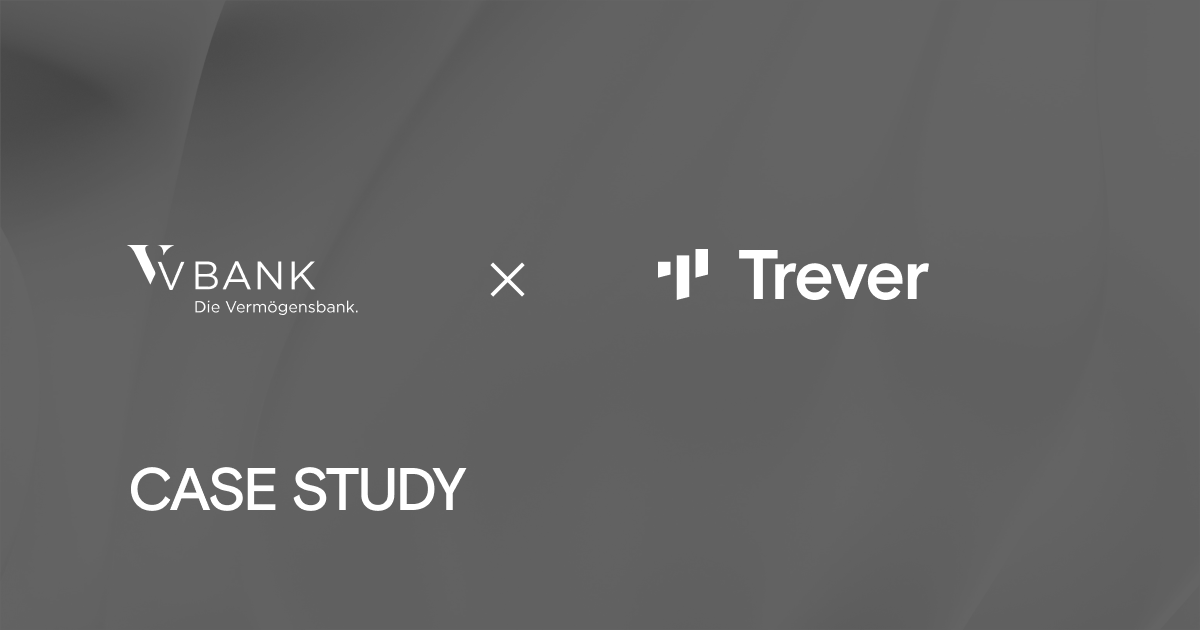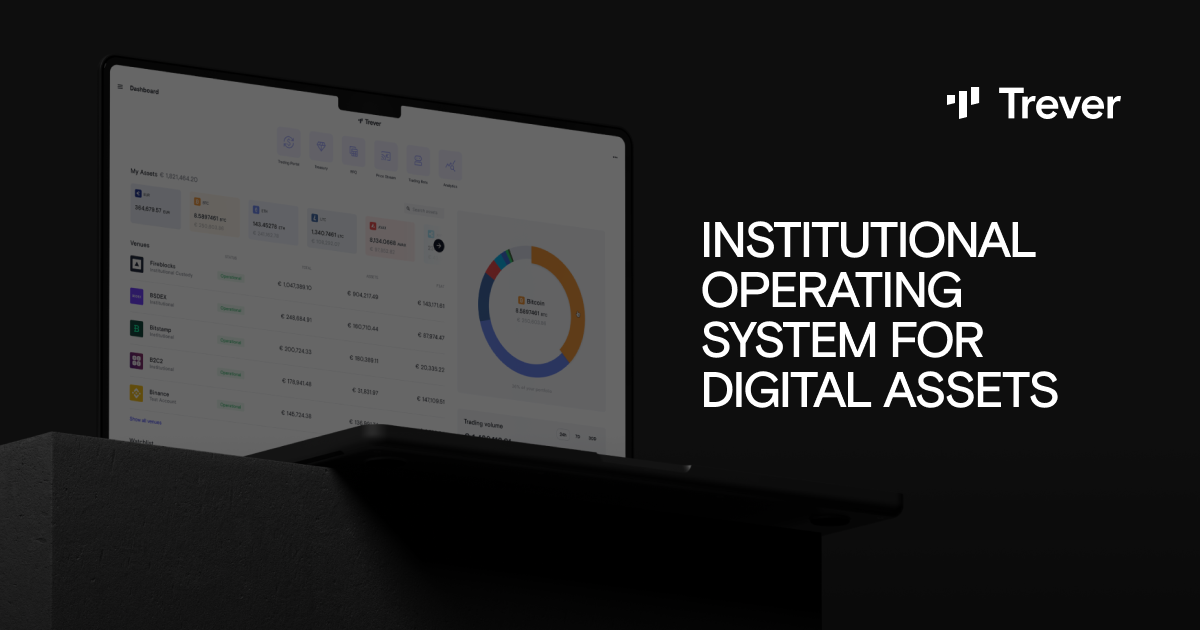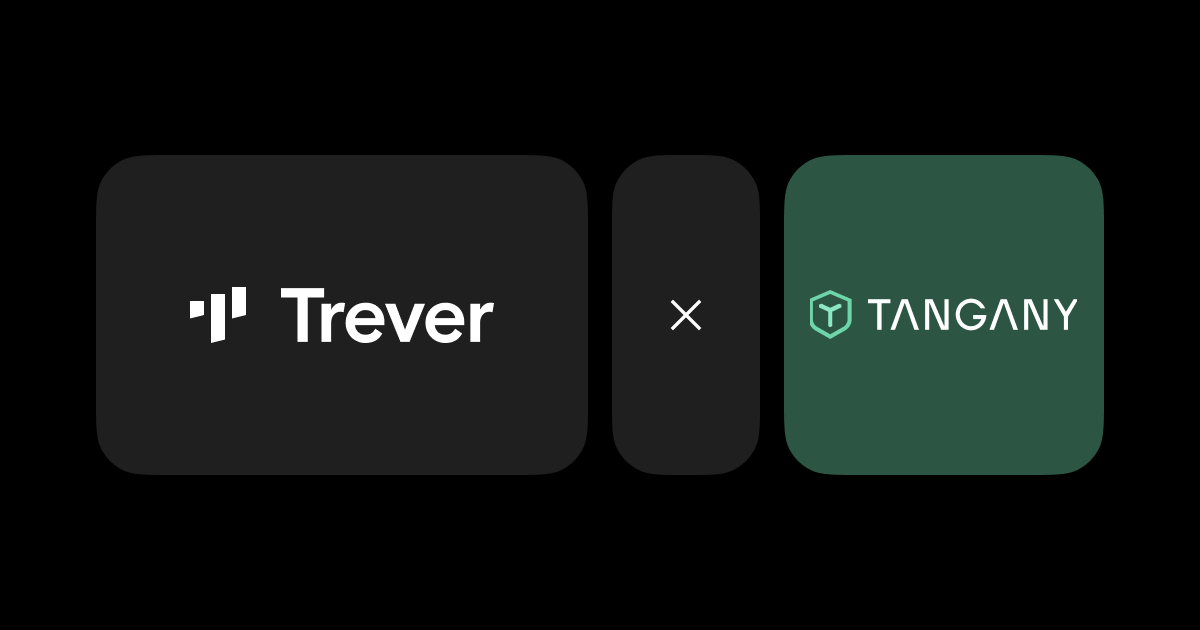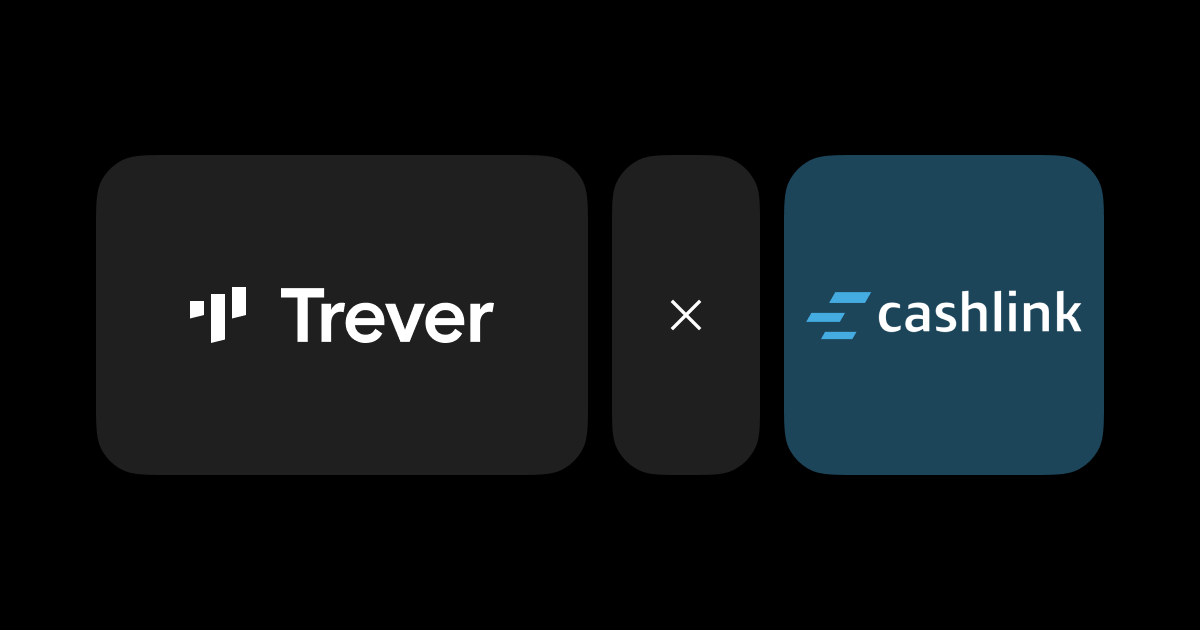These 3 Compliance Regulations are essential when offering Crypto Assets
If your institution want to offer crypto assets, you need to be aware of a wide range of compliance regulations. Trever knows the requirements very well from working with financial institutions and now provides an overview of which compliance standards are essential.

From DORA to MiCAR to the Travel Rule: if your institution wants to offer crypto assets, you need to be aware of a wide range of compliance regulations in time to meet implementation deadlines. Trever knows the requirements very well from working with financial institutions and now provides an overview of which compliance standards are essential.
DORA (Digital Operational Resilience Act)
The Digital Operational Resilience Act (DORA) is a European regulation focused on the effective management of risks related to information and communication technology (ICT) in the financial sector. Its primary aim is to ensure that financial institutions can maintain operations even in the face of significant cyber threats or ICT disruptions, enhancing their resilience against such risks.
When does the regulation come into force?
DORA will apply from 17 January 2025.
Who should be aware of?
All financial market participants such as
- credit institutions
- payment institutions
- crypto asset service providers
- exchanges
- electronic money institutions
- investment firms
- account information service providers
- insurance companies
- clearing houses
- alternative fund manager
- etc.
Additionally, all ICT providers in this field should keep an eye on upcoming DORA-Regulation.
(DORA And Its Impact On UK Financial Entities And ICT Service Providers, o. D.)
MiCAR (Markets-in-Crypto-Assets-Regulation)
The Markets in Crypto-assets Regulation (MiCAR) was introduced to create a harmonised crypto-assets regulatory framework within the European Union (EU). The aim is to strengthen investor and consumer protection and combat money laundering and terrorist financing.
When does the regulation come into force?
On 30 June 2024, requirements for issuers of e-money tokens and asset reference tokens started to apply. On 30 December 2024, the remaining requirements will come into force and all issuers and crypto asset service providers will have to comply with MiCAR.
(Markets in Crypto Assets Regulation(„MiCAR“), 2024)
Which crypto assets are covered?
- Asset Referenced Tokens
- E-Money Tokens
- Further crypto assets including Utility Tokens
Who should be aware of?
This affects all entities who issue crypto assets or provide services in connection with crypto assets in the European Union, so-called Crypto Asset Service Providers (CASPs). This includes companies that,
- issue or offer crypto assets.
- provide crypto-asset services in connection with crypto-assets. (Even if there is no direct connection with the settlement of crypto assets, e.g. consulting).
- want to offer crypto asset services in the future.
(FinPlanet, 2024)
Travel Rule
In 2019, the Financial Action Task Force (FATF) expanded its anti-money laundering (AML) and combating the financing of terrorism (CFT) regulations to cover virtual assets and virtual asset service providers (VASPs), commonly referred to as the “Travel Rule”.
The Travel Rule obliges VASPs to identify and share information about the source (originator) and recipient (beneficiary) of crypto transactions that exceed a certain threshold. This rule aims to prevent money laundering and other illegal activities.
This information includes the name, account number and address, national identity number, customer identification number or date and place of birth of the originator. Also the name and account number of the beneficiary has to be shared.
(What Is The Crypto Travel Rule?, o. D.)
When does the regulation come into force?
Travel Rule will apply on 30 December 2024.
(KPMG AG Wirtschaftsprüfungsgesellschaft, 2024)
Who should be aware of?
The travel rule affects VASPs for both fiat and virtual asset transactions. The Travel Rule is to be implemented if…
- The transactions involve a traditional wire transfer or
- A virtual asset transfer between a VASP and another obliged entity or
- A virtual asset transfer between a VASP and a self-hosted wallet.
(Everything VASPs Need To Know About The FATF Travel Rule, o. D.)
Summary
These regulations, among others, have a significant impact on the crypto landscape in Europe. By preparing and ensuring compliance, businesses can avoid potential disruption. If you want to integrate a fully compliant operating system to manage digital assets, get in touch with us: https://trever.io/contact/
Sources:
DORA and its impact on UK financial entities and ICT service providers. (o. D.). PwC. https://www.pwc.co.uk/industries/financial-services/insights/dora-and-its-impact-on-uk-financial-entities-and-ict-service-providers.html
FinPlanet. (2024, 2. Oktober). FinPlanet on LinkedIn: MiCAR-Factsheet Crypto-asset service provider. https://www.linkedin.com/posts/finplanet_micar-factsheet-crypto-asset-service-provider-activity-7247145701447503872-e1fy/?utm_source=share&utm_medium=member_desktop
Markets in Crypto Assets Regulation(„MiCAR“). (2024). https://www.linkedin.com/posts/finplanet_micar-factsheet-activity-7242445800264351744-XvdY/?utm_source=share&utm_medium=member_desktop
What is the Crypto Travel Rule? (o. D.). https://notabene.id/crypto-travel-rule-101/what-is-the-crypto-travel-rule#what-are-the-fatf-travel-rule-requirements
KPMG AG Wirtschaftsprüfungsgesellschaft. (2024). The Travel Rule Transfer of Crypto Assets in Germany and the European Union. In Brochure. https://assets.kpmg.com/content/dam/kpmg/de/pdf/Themen/2024/05/kpmg-the-travel-rule-brochure.pdf
Everything VASPs need to know about the FATF travel Rule. (o. D.). 21 Analytics. https://www.21analytics.ch/what-is-the-fatf-travel-rule/
Disclaimer: The information provided on this website and in blog posts is for general informational purposes only. It does not constitute legal or financial advice and should not be interpreted as such. In particular, this information does not constitute an offer or solicitation to buy, sell, or trade any assets or digital currencies.
Please note that Trever GmbH is neither licensed under the Austrian Securities Supervision Act (Wertpapieraufsichtsgesetz 2018, WAG 2018) or the German Commercial Securities Authorization Act (Gewerbliches Wertpapierberechtigungsgesetz, GWB), nor a licensed credit institution. Trever is not registered as a financial service provider and do not offer investment advice or similar services. The views expressed in the content are solely those of the author and are subject to change without notice.
Trever GmbH assumes no liability for any decisions made based on the information provided. The use of this content is at your own risk. We recommend that you seek advice from qualified professionals and conduct your own independent evaluation of the legal and financial implications before making any investment decisions.
Recent stories

Flexible, Secure, Scalable: The key to a future-proof Digital Asset Banking Infrastructure
The financial industry is undergoing a profound transformation and digital assets will play an important role in shaping its future. This case study delves into how V-Bank AG streamlines it’s digital asset operations with Trever’s Digital Asset Operating System, to stay ahead in this dynamic landscape.

These 5 Digital Asset Classes are Driving Institutional Interest
In the past years, digital assets are expanding rapidly. To create a secure and transparent environment, frameworks of the EU and further global regulators are coming into force. These milestones empower institutions considering more and more types of digital assets.

Tokenized Securities are gaining momentum: An Overview
The digital asset ecosystem continues to evolve in high speed and relevant regulatory standards pave the way for digitizing assets. Among them, tokenized securities are growing in popularity.

Leading Financial Institutions rely on Trever - this is why
Learn more about Trever and how it enables financial institutions to securely and efficiently trade, transfer and manage digital assets such as crypto securities, cryptocurrencies, stablecoins, etc.

Why Financial Institutions should focus on Digital Assets now
Have you ever thought about integrating digital assets institutionally? Find out why getting 'ready' for digital assets is like a marathon and why institutions should get up and running now.

Cooperation Announcement: Trever x Tuum
The partnership between Trever and Tuum, a leading next generation core banking platform, empowers financial institutions to stay ahead in a rapidly changing market that requires high flexibility and efficiency.

Trever Accelerates European Market Growth for Digital Asset Infrastructure
Trever continues fuelling its growth in the European market with a €2.4 million seed investment. The software provides a compatible infrastructure and enables trading, transfer, and bookkeeping of digital assets.

Trever pioneers institutional software for digital assets
Trever is shaping the financial sector with software for managing digital assets. Now the founders talk about how Trever came about and what motivates them to rise in the market.

Hyphe, Tangany and Trever collaborate on all-in-one digital assets solution, Launchpad
Launchpad partnership drastically reduces time-to-market for institutions, combining digital asset trading, custody and order management in a single solution.

Cooperation Announcement: Trever x Tangany
As a BaFin-regulated custodian, Tangany sets the standard with its B2B solution for secure custody of blockchain-based digital assets.

